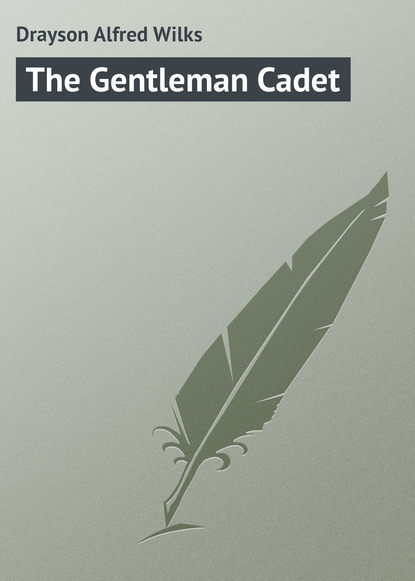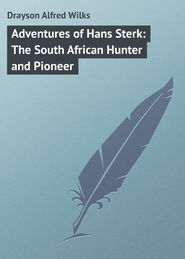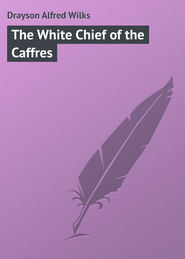По всем вопросам обращайтесь на: info@litportal.ru
(©) 2003-2024.
✖
The Gentleman Cadet
Настройки чтения
Размер шрифта
Высота строк
Поля
After an early breakfast I walked with Mr Rouse towards the Academy, where the examination was to be held, and on the common was joined by five of my old schoolfellows from Hostler’s.
“What, Shepard!” said one of them, “you don’t mean to say you are going to try the examination? Why, I heard you’d given it up!”
“Oh, I’m going to try, just for the fun of the thing,” I replied.
“If I’d been you I’d have cut the affair, for it’s far better to withdraw than to have the discredit of being spun.”
“How Hostler will laugh when he hears of your coming up!” said another of my old schoolfellows.
“Fraser!” shouted another boy to some one I saw about a hundred yards ahead, “come here! here’s your old antagonist, Shepard?”
Fraser waited for us to join him, and then said, “How are you, Shepard? You’re looking deuced seedy. What’s the matter, and what are you doing here?”
“I’ve had a bad cough,” I replied, “and am coming up just for the fun of the examination.”
“Why, you don’t expect you’ve a chance, do you?” he continued. “Hostler told us you had given it up as the wisest plan.”
“Oh, I don’t suppose I’ve any chance,” I said; “at least, not with you fellows, but I thought I would come up to see what the examination was like.”
“And have it always said of you that you’d been spun at Woolwich. I think you’re a muff for your pains.”
On entering the Academy grounds we were shown to one of the cadets’ rooms, where we had to pass a medical examination. The marks of leeches and blisters on my chest at once attracted the doctor’s attention, and he declined to pass me, and sent me at once before a Board.
To meet this Board I had to walk down to the hospital near the barracks, which I did with a sergeant of Artillery to show me the way; and I soon found myself being tapped on the chest and examined by the doctors as if I were a piece of goods they were about to buy. As good luck would have it I did not cough, or I might never have had a chance for my examination. But after a slight consultation I was passed, and was sent back to the Academy to commence my examination.
I was shown into a fair-sized room, where I found about forty boys at work. They had already an hour’s start of me, and a short, smart-looking officer, who gave me a printed paper of questions, advised me to lose no time, as I was already behindhand.
“Now for the actual trial,” I said to myself, as I looked over the paper, which contained twelve questions in arithmetic and the earlier part of algebra. A feeling of delight came over me as I read this paper, for out of the twelve questions there were eight almost exactly similar to questions I had worked out with Mr Rouse.
I commenced my work without delay, but deliberately and carefully. The answers came out without difficulty, and I was tolerably certain that every question but one I had done correctly. When the time was up I gave my paper to the officer, left the Academy, and met Mr Rouse on the common, to whom I related the style of questions, and described how I had treated them.
“You ought to have done well if you have been careful,” said Rouse, “and I am glad to find that I was correct in my surmise as to the style of questions you would have. The style varies from time to time, but there seems a kind of order in which they return, and on this I trained you. This afternoon you will very likely have a catch equation among the quadratics, such as x = 6. You remember that, don’t you?”
“Oh, yes,” I replied; “I can work that out in my head.”
“You must be careful about your Euclid, too,” he continued; “they lay great stress on that, and cramming won’t do for Euclid, because they give you a variation from the book, in order to test if you know principles.”
In the afternoon a second paper was given me; and there, sure enough, I found the identical equation that Mr Rouse had told me of. This I solved at once, and, looking carefully round, saw that several boys were in difficulties, and seemed to be unable to advance.
During the afternoon I felt certain I had done well, and now my only fear was for my Euclid, which would come off on the morrow.
That evening Mr Rouse said, “I believe you will have one of five problems I can name in the first, second, and third books of Euclid, so if you are not too tired we will just go over them to-night.”
An hour was devoted to the explanation of certain propositions, and I, as before, went to bed early, but was at least two hours before going to sleep, occupied in thinking over the various subjects we had worked at.
On reaching the Academy on the following morning I found all the candidates assembled in the room in which we had worked on the previous day. From this room the candidates were sent for one by one, in order to be examined in Euclid.
When it came to my turn I was shown into a small room, in which I found three officers and a civilian seated at a table, whilst opposite to them was a large black board.
“Mr Shepard,” said the civilian, “will you tell us what the 20th proposition of the first book of Euclid treats of?”
As this question was slowly and deliberately put I felt a strange feeling of nervousness come over me. It suddenly occurred to me, “Suppose I broke down here?” I knew if I did I should be spun to a certainty, and the idea for a moment quite unnerved me. There was a dead silence for about a minute, then, in half-broken sentences, I replied, “To prove two sides greater than the third.”
“Very well,” continued the same gentleman; “will you now draw a figure on that board, and prove the problem, and be kind enough not to prove the same two sides to be greater than the third side that are proved in Euclid?”
I took a piece of chalk, and, though my hand trembled, I drew the first line, and then thought which two sides I should prove to be those greater than the third. As I thought over this, my nervousness seemed to leave me, and I saw nothing but the board and the problem. It would have been no matter to me whether four people or four hundred had been present, for I forgot my audience. I experienced no difficulty in demonstrating the problem, thanks to Mr Rouse’s training; and having then demonstrated two other problems – one in the third, one in the second book – I was told that that would do.
“May I ask who taught you your Euclid?” inquired the examiner.
“Mr Rouse, sir.”
I could not distinctly hear what was said by the examiner to the officers, but the words “that accounts” and “utterly opposed to cramming” were audible.
A brief examination in drawing, in Latin, French, and German, and a paper in history and geography, completed the examination; and I returned with Mr Rouse to London, and on the following day started by coach for home.
Chapter Seven
Passed
It was usually four or five days before the result of the examination became known, and another day for a letter to reach us in Hampshire, so that I fairly calculated a week would pass before I should know my fate.
The excitement of the examination, which had kept me up during the past few days, now left me, and a feeling of despondency, caused probably by reaction, came over me. My cough returned, and a low fever came on, which kept me to my bed. Say what I would, I could not help being most anxious about the result of my examination. My nights were sleepless, and each morning, as the time arrived for the postman to come, I could scarcely keep in bed, as I listened to every sound in the hope of hearing that my suspense was ended.
It was on the eighth day after my return home that, on the arrival of the postman, I heard anxious voices downstairs; a minute’s silence, and then a rush of feet. My two sisters hurried into my room, carrying a large letter, and exclaimed, —
“Bob, you’ve passed; and have done well, too! Listen to this: —
“‘Sir, – I have the honour to inform you that at the late examination at Woolwich, your son, Robert Shepard, was found fully qualified for admission to the Royal Military Academy. I am directed to request that he will join that institution on the 1st proximo, and report himself to the Captain of the Cadet Company.
“‘I have the honour to be, (signature)’
“Some one whose name I can’t read,” said my sister.
“Bravo, Bob! isn’t this capital? I knew you’d pass?”
Six months previously, if any prophet had informed me that I should pass my examination and become a gentleman cadet, I should have fancied that such a result would have caused me to shout with joy, and to be quite overcome with delight; now, however, that I had passed, and the intelligence had arrived, so as to place the result beyond a doubt, I was myself surprised at the little effect that was produced on me. Although I did not like to give way to any sanguine hopes, still, when the examination was over, I felt tolerably certain I had done well. The examination had been what may be called a lucky one for me. The questions were such as I had been practising for days previous to the examination, and were consequently easy to me. My success, therefore, was not entirely a surprise to me, and I saw clearly the means by which I had gained success. At Hostler’s, as soon as a boy came out of school, he tried to forget all about work, and his problems, therefore, made but a small impression on him. At Rouse’s, however, the hours of study were so brief by comparison, and reason so completely took the place of cramming, that the mind was not worn out when the evening came, and I often found myself deliberating about a problem as I took a constitutional round the Square gardens. I now knew that the hours of quiet thought I had given to various subjects had enabled me to pass the examination, which to a crammed boy was so very difficult.
When I thought of Mr Hostler, his boys, and his prophecies about the impossibility of my passing, I felt a feeling of intense satisfaction, for I believed, in my innocence, that Hostler would own he had made a mistake. I little imagined then that a man of his type of character never owns to a mistake, but invariably claims some merit to himself, even out of his blunders. I afterwards ascertained that Mr Hostler claimed the entire merit of my passing, in consequence, as he said, of the thoroughly sound groundwork he had given me at his school, thus enabling Mr Rouse to give a little superficial polish on it.
I continued so weak, and my cough was so bad, that it was considered advisable to apply for sick-leave for me, which was granted, and I remained at home for seven weeks. Howard had been removed to Ireland, so I saw nothing of him, a fact I much regretted, as I hoped to gain from him some hints relative to my course at the Academy, a subject on which I was very anxious; for I had heard various rumours, when at Rouse’s, of the “fagging” and “bullying,” as it was termed, carried on by the older cadets on their juniors.
At length the day arrived when I reached Woolwich with my father, and presented myself at the office of the Captain of the Cadet Company, where I signed a paper to the effect that I was amenable to certain laws, was appointed to a room, and then left to commence my experiences as a gentleman cadet at the Royal Military Academy at Woolwich.
Chapter Eight
Woolwich Academy Forty Years Ago – Experience of a Last-Joined
Of all the reformations which have taken place during the past thirty-five years in various establishments, none have been greater than that which has occurred at the Royal Military Academy, Woolwich. In the days of which we write fagging was an almost recognised institution, and this so-called fagging in the majority of instances degenerated into bullying. It may seem hard to say it, but we feel compelled to assert our belief that, in the majority of cases, when boys of from fifteen to eighteen have unlimited power entrusted to them they usually become tyrants. What may be termed “the exercise of power” grows more and more severe until it becomes a vice. Boys as a rule are unreflecting, and they are not aware, and scarcely care if they are aware, of the misery or pain they inflict. When, too, a boy in his younger days has been bullied and ill-used, he considers it a point of duty to do unto others as was done unto him, and often this retaliation was passed on with interest. In those days it was considered, too, that fagging to a certain extent aided discipline, and also tended to do away with brute force; for the smallest cadet, if an old cadet, might fag or kick at pleasure a last-joined giant. According to the nature of an old cadet, so did his fag, or “neux,” as he was termed, lead a miserable or a tolerably comfortable life; and often the trial through which a last-joined cadet had to pass was so severe that, rather than pass through it, he left the institution. To such an extent did the bullying extend in some institutions at the date to which we refer that it is stated, and on good authority, that a boy was once roasted by his seniors to such an extent that he died from his exposure to the fire, whilst there are men now living who bear on their bodies the scars received by them when fags. That such a system has been done away with is a necessity of the age. That there were and are advantages in teaching lads that brute force is not the only power, and that discipline is an essential of society, is not to be denied; but the disadvantages of entrusting to boys of from fifteen to seventeen such power over their juniors as was given by the fagging system formerly, either recognised or winked at by the authorities at Woolwich, is a mistake, and it is a subject of congratulation that at the present time even fagging is discountenanced with a strong hand.









